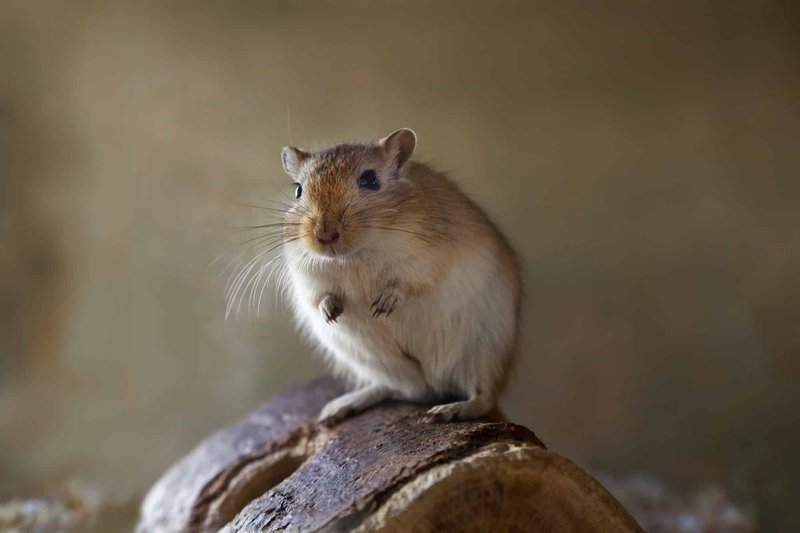
Let’s imagine for a moment that you’re sitting across from me at a cozy cafe, and we’re talking about how to care for our pets. You might feel a bit nervous if you notice your gerbil isn’t acting like its usual self. That’s completely normal! Let me explain what signs to look for and how to handle these health concerns like a pro, so you can ensure your gerbil lives a healthy life.
Recognizing Symptoms of Illness
Before diving into specific illnesses, it’s crucial to know how to recognize when your gerbil might be feeling unwell. They can’t tell us directly what’s wrong, but their behavior often gives us clues. Look for changes in their appetite, activity level, or bathroom habits.
Here are some signs to watch for:
- Reduced Activity: If your gerbil is usually a ball of energy but suddenly seems lethargic, it’s time to pay attention.
- Changes in Eating Habits: Is your furry friend suddenly ignoring its favorite snacks? This could indicate a health issue.
- Abnormal Grooming: If you notice your gerbil isn’t grooming itself or is over-grooming, this can signal stress or illness.
These symptoms can be subtle, so it’s essential to be observant. Just like we’d check in on a close friend who seems off, keeping an eye on our pets can help catch problems early.
Respiratory Issues
One of the more common illnesses among gerbils is respiratory problems. These can often arise due to poor cage conditions or exposure to irritants like dust. Signs of respiratory distress include wheezing, coughing, or discharge from the eyes and nose.
If you notice any of these symptoms, here’s what you can do:
1. Improve Cage Conditions: Make sure your gerbil’s cage isn’t too dusty by cleaning it regularly and using safe bedding materials, like paper-based bedding.
2. Consult a Vet: It can be tempting to wait and see if things improve, but a veterinarian who specializes in small animals can help identify the issue and provide treatments.
3. Provide Fresh Air: Ensure your gerbil is in a well-ventilated space. However, avoid drafts, as they can make matters worse.
The important thing is to act quickly. Respiratory issues can escalate if left untreated.
Diarrhea and Digestive Issues
Another common concern is digestive problems, often manifesting as diarrhea. This can be caused by dietary changes, stress, or infections. It’s a little like when we eat something off; our stomachs don’t always agree with us!
Recognizing diarrhea in gerbils requires looking out for:
– Watery droppings
– Changes in behavior, like reduced playfulness
– Weight loss or dehydration
To treat diarrhea in your gerbil:
– Check the Diet: Ensure they’re eating a balanced diet. Pellets formulated for gerbils are a safe bet, but be cautious with fresh fruits and vegetables.
– Hydration is Key: Make sure fresh water is always available. Dehydration can happen quickly with diarrhea, which is a concern!
– Visit the Vet: If symptoms persist for more than a day, a vet visit is crucial. They can recommend medications or dietary adjustments.
Gerbils thrive on stability, so any sudden changes in diet or environment should be approached with care.
Dental Problems
Did you know that gerbils’ teeth never stop growing? That’s right! Because of this, dental issues can be quite common, especially if they can’t wear down their teeth naturally. Signs of dental problems include difficulty eating, drooling, or noticeable weight loss.
To ensure your gerbil’s teeth remain healthy:
– Provide Chew Toys: Give your gerbil safe chew items like untreated wood blocks or cardboard. This helps wear down their teeth naturally.
– Regular Monitoring: Keep an eye on their teeth. If they look too long or crooked, it might be time for a vet visit.
– Watch for Signs of Pain: If your gerbil seems to be favoring one side while eating, that could signal a dental issue that needs addressing.
Early intervention can often prevent more severe complications down the line.
Skin Issues and Parasites
Skin problems can also arise in gerbils, including mites that cause itching or irritation. If you see your gerbil scratching excessively or notice bald patches, it could indicate a parasite infection or skin irritation.
You can help your gerbil by:
1. Maintaining a Clean Environment: Regular cage cleaning reduces the risk of infections. Use a mild, pet-safe cleaner.
2. Check for Other Pets: If you have other animals, ensure they aren’t passing any parasites to your gerbil.
3. Vet Treatment: A veterinarian can provide medications or topical treatments for skin issues.
Just like how we might need ointments or creams for skin irritations, our pets require specialized care too.
Preventive Care for a Healthy Gerbil
Keeping your gerbil healthy often starts with prevention. Here are a few tips to help you out:
– Regular Vet Check-ups: Routine visits to a vet who specializes in small animals can catch potential issues early.
– Balanced Diet: Stick with high-quality gerbil pellets, supplemented with fresh veggies and occasional treats.
– Mental Stimulation: Provide a variety of toys to keep your gerbil engaged. Not only does this prevent boredom, but it also promotes overall well-being.
Preventive care is like giving your gerbil a strong foundation for a happy life. Simple practices can make a big difference.
Understanding common gerbil illnesses is a vital part of being a responsible pet owner. By recognizing symptoms early and knowing how to address them, you can ensure your little buddy stays vibrant and active. Remember, just like you would for a friend in need, checking in and providing care goes a long way in keeping your gerbil happy.
With regular check-ups, a well-balanced diet, and a clean environment, you can help your furry friend lead a healthy and joyful life. So, let’s keep those little whiskers wiggling and those tiny feet running! Your gerbil is counting on you!

